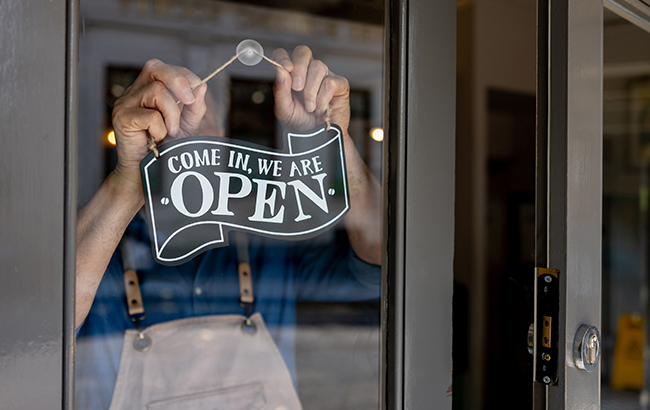UK licensing reform gets lukewarm response from on-trade
A fast-track review could adapt licensing rules in the UK, however not everyone in the on-trade has welcomed the teased changes.

The government said the review would “tear up outdated licensing rules that have been holding back pubs, bars and local events”. In order to do this, it is consulting with on-trade operators, consumers and communities during a four-week call for evidence.
Prime minister Keir Starmer said: “Pubs and bars are the beating heart of our communities. Under our Plan for Change, we’re backing them to thrive.
“This review is about cutting red tape, boosting footfall, and making it easier for venues to put on the kind of events that bring people together. When our locals do well, our economy does too.”
The call for evidence will focus on nine key recommendations from the government’s licensing taskforce, with particular emphasis on streamlining on-trade alcohol licensing for hospitality venues.
The Night Time Industries Association (NTIA) formed part of the licensing taskforce, with its CEO Michael Kill welcoming the expedited consultation period. He said: “This fast-track review will give industry operators, landlords, and communities a genuine opportunity to help shape the future of licensing in the UK.
“The commitment to cutting outdated red tape that has long held back pubs, bars, and venues – while creating space for more live music, food, and community events – is a positive step forward.”
However, while he acknowledged that the proposals could be “an important shift in the licensing landscape”, he believes more needs to be done to “resolve the deep economic pressures currently engulfing the sector”. He added: “These reforms must form part of a broader effort to address business rates, cost inflation, and workforce challenges if we are to truly revitalise our high streets and night-time economy.”
Kate Nicholls, chair of UKHospitality, which also contributed to the taskforce, called on hospitality businesses to contribute to the call for evidence.
While she welcomed the review, she warned: “I am clear that these changes are absolutely not a silver bullet to solve the existential cost challenges hospitality businesses are facing.
“While we have grasped this once-in-a-generation opportunity to modernise the licensing system, we continue to campaign vociferously for material change to reduce the sector’s cost burden at the budget.
“Hospitality is being taxed out, and we need the government to lower business rates, fix NICs [national insurance contributions] and cut VAT to reverse the damage done by last year’s budget, which has so far seen 84,000 hospitality jobs lost.”
Extended operating hours
Although the announcement did not elaborate on which proposals were being considered, it has been widely reported that extended operating hours are being considered.
Sacha Lord, the former night-time economy advisor for Greater Manchester, posted on X: “The fact that the government are considering extending hours for pubs highlights how out of touch they are with the sector.
“They don’t need extra hours; with extra costs, they need a reversal of the NI [national insurance] increase, reduction in business rates and a lowering of VAT. Extending hours is just a desperate headline.”
Dan Maimone, head of global customer experience at workforce management platform Harri, echoed Lord’s sentiments, adding: “Later hours don’t automatically mean better margins.”
He said: “Extending trading hours without re-engineering labour models, sales forecasting, and team scheduling can quickly turn a ‘boost’ into a cost sink. Stretching staff hours on low sales volumes doesn’t build growth. It can erode it. The trends have changed over recent years and already seen many pubs close doors earlier due to low footfall.”
Last year, the municipal council of Montreal considered extending opening hours for its city’s bars, with venues underwhelmed by the proposals.
Related news
BuzzBallz unleashes 10ft gumball machine in UK
